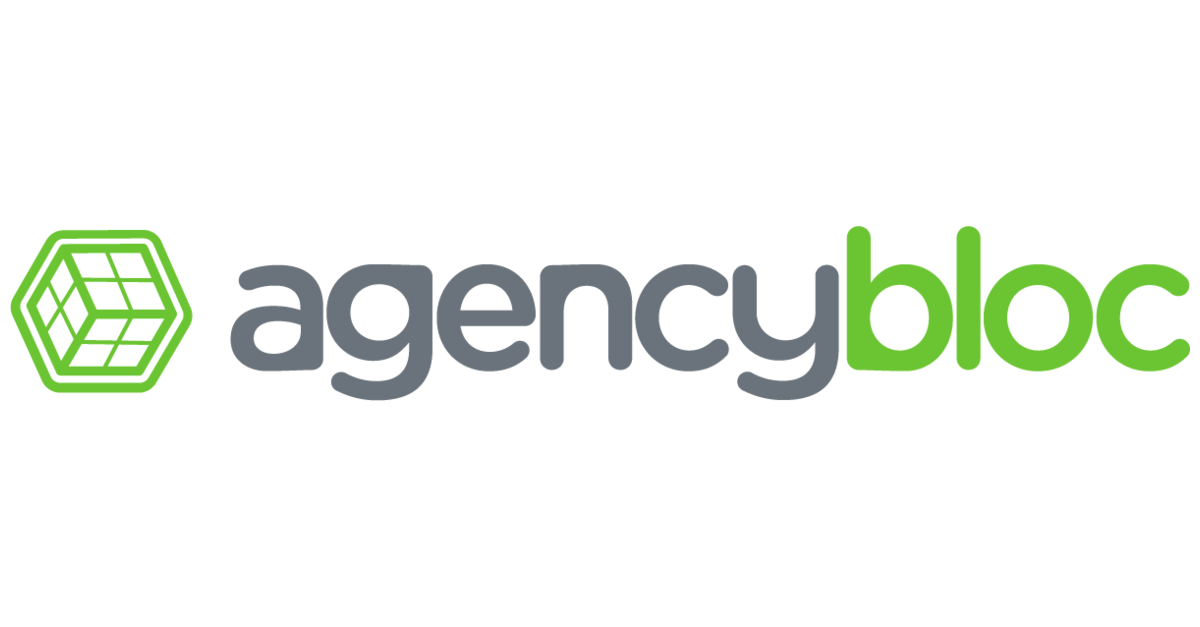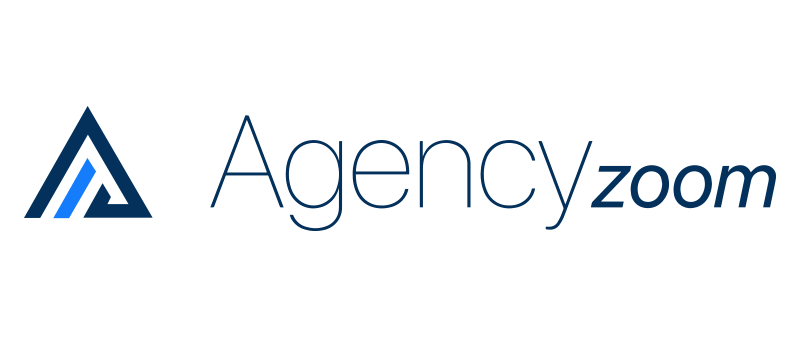Finding the best CRM software for insurance agents is crucial for streamlining and automating your business processes, enhancing customer relationships, and boosting overall productivity. With the right CRM solution, insurance agents can effectively manage their client database, track leads, automate follow-ups, and provide personalized customer service.
Look for features like contact management, lead tracking, email integration, task automation, and reporting capabilities. Read on to explore some of the top CRM software options specifically designed for insurance agents.
QuickLook: Best CRM Software for Insurance Agents
- Salesforce
- HubSpot
- Zoho
- Pipedrive
- Insureio
- Applied Epic
- AgencyBloc
- AgencyZoom
- Microsoft Dynamics 365
How Can CRM Software Benefit Insurance Agents?
CRM software plays a pivotal role in the insurance industry, helping agents streamline administrative tasks, enhance customer communication, and gain valuable insights to make informed decisions. Here are several ways in which CRM software can benefit insurance agents:
- Centralized Customer Information: CRM software serves as a centralized repository for customer data. Insurance agents can easily access and update customer information, policies, contact details, and communication history. This allows for a personalized and informed approach when interacting with clients.
- Improved Customer Engagement: CRM systems enable agents to track interactions with clients, including emails, phone calls, meetings, and notes. This information helps agents understand client needs, preferences, and concerns, facilitating meaningful and relevant conversations.
- Lead Management: CRM software can automate lead generation and distribution processes. Agents can import leads, assign them to team members, and set reminders for follow-ups. This ensures that leads are not lost and potential clients are engaged promptly.
- Cross-Selling and Upselling: CRM software can analyze customer data to identify cross-selling and upselling opportunities. Agents can suggest additional insurance products or coverage options to existing clients, thereby increasing revenue per customer.
- Document Management: Insurance agents deal with a significant amount of paperwork. CRM software can help organize and manage documents related to policies, claims, and client communications, making it easier to retrieve and share information
- Scalability: As an insurance agency grows, CRM software can scale with it. Whether an agency adds more agents, clients, or products, CRM systems can adapt to accommodate increased demands.
How to Choose the Best CRM Software for Insurance Agents?
When choosing the best CRM software for insurance agents, it’s essential to consider several key features that can significantly impact your agency’s efficiency and success. These features include:
Policy Management: A good CRM should offer comprehensive policy management capabilities. It should enable you to easily input, track, and manage policies for your clients, including policy details, renewal dates, and premium amounts.
Claims Tracking: Insurance agents frequently deal with claims processing. Look for a CRM that allows you to efficiently track and manage claims, ensuring timely processing and excellent customer service.
Customer Relationship Management (CRM): The heart of any CRM is its ability to manage customer relationships effectively. Ensure the CRM provides features like contact management, communication history, and a 360-degree view of your clients to help you nurture and strengthen these relationships.
Reporting and Analytics: In the insurance industry, data is invaluable. Your CRM should offer a variety of reporting and analytics tools that allow you to generate insightful reports, track sales performance, and identify trends. These insights can drive your agency’s decision-making processes.
Automation and Workflow: A good CRM should streamline your workflows by automating routine tasks. Look for features like email automation, task assignments, and workflow automation to save time and increase productivity.
Integration Capabilities: Your CRM should seamlessly integrate with other tools and software you use in your agency. Whether it’s email platforms, document management systems, or marketing tools, integration ensures a cohesive and efficient workflow.
Mobile Accessibility: In today’s on-the-go world, having access to your CRM from mobile devices is crucial. Ensure the CRM offers a mobile app or responsive design for easy access and management while you’re in the field.
Customization Options: Each insurance agency has unique needs and workflows. A CRM with customization options allows you to tailor the system to match your specific requirements, ensuring a more efficient and personalized experience.
Training and Support: Consider the availability of training resources and customer support. A CRM vendor that offers training sessions, tutorials, and responsive customer support can significantly impact your user experience.
Security and Compliance: Insurance agencies deal with sensitive client data. Ensure the CRM prioritizes data security and compliance with industry regulations, such as HIPAA or GDPR, if applicable.
10 Best CRM Software for Insurance Agents
With so many options, finding the best CRM software can be tough. To simplify this process and ensure that you discover a CRM that aligns perfectly with your requirements, here is a list of the top 10 best CRM systems for insurance agents.
1. Salesforce CRM
AI + Data + CRM = more sales and happier customers.
Start or grow your business with the #1 CRM. Salesforce now has AI tools that helps you connect with your customers in a whole new way.
Salesforce is a widely used CRM software that offers extensive customization options and a large set of features, such as opportunity management and lead tracking, tailored for the insurance industry. It also provides seamless integration with other business tools.
Key features of Salesforce CRM:
- Opportunity management
- Lead tracking
- Customization options
Pricing and Plans: Starter plan starts at $25 a month.
Pros:
- Extensive customization
- Many features
- Integration capabilities
Cons:
- Pricing can be high for small businesses
2. HubSpot CRM
Grow better with HubSpot
Software that's powerful, not overpowering. Seamlessly connect your data, teams, and customers on one CRM platform that grows with your business.
HubSpot offers free CRM software that is easy to use and provides a comprehensive set of features to manage contacts, track deals, and automate sales processes. It also integrates well with HubSpot’s marketing and sales tools.
Key features of HubSpot CRM:
- Contact management
- Deal tracking
- Sales automation
Pricing and Plans: HubSpot CRM is free to use, with options to upgrade for additional features.
Pros:
- User-friendly
- Integration with marketing tools
- Free version available
Cons:
- Advanced features may require an upgrade
3. Zoho CRM
Bring the very best out of your customer-facing teams with robust automation, comprehensive analytics, personalized solutions, and more. Sign up and get started in no time—the fastest implementation in the enterprise CRM market.
Zoho CRM provides a complete solution for insurance agents with features like lead management, data analytics, and workflow automation. It also offers integration with other Zoho apps, such as Zoho Campaigns and Zoho Books.
Key features of Zoho CRM:
- Lead management
- Data analytics
- Workflow automation
Pricing and Plans: Zoho CRM offers plans starting at $14 a month.
Pros:
- Comprehensive solution
- Integration with other Zoho apps
- Workflow automation
Cons:
- Learning curve for beginners
4. Pipedrive
The CRM platform to grow your business
The first CRM designed by salespeople, for salespeople. Do more to grow your business.
Pipedrive is a user-friendly CRM software that focuses on pipeline management and sales forecasting. It offers customizable workflows, email integration, and reporting tools to help insurance professionals effectively manage their sales processes.
Key features of Pipedrive:
- Pipeline management
- Customizable workflows
- Email integration
Pricing and Plans: Pipedrive offers pricing plans starting at $14.99 per month.
Pros:
- User-friendly
- Sales forecasting
- Email integration
Cons:
- Limited customization options
5. Insureio
Insurance Marketing Evolved
Unleash the power of automation to streamline insurance marketing and lead management.
Insureio is specifically designed for insurance professionals and offers features like lead management, policy tracking, and automated workflows. It also provides advanced reporting and integration capabilities.
Key features of Insureio:
- Lead management
- Policy tracking
- Automated workflows
Pricing and Plans: Insureio offers basic plans starting at $25 a month.
Pros:
- Insurance-specific features
- Advanced reporting
- Integration capabilities
Cons:
- May have a learning curve for beginners
6. Applied Epic
Applied Epic is a comprehensive CRM and agency management solution specifically tailored for the insurance industry. It offers features such as client management, policy tracking, and document management, all in one platform.
Key features of Applied Epic:
- Client management
- Policy tracking
- Document management
Pricing and Plans: Applied Epic provides customized pricing based on your agency’s requirements.
Pros:
- All-in-one platform
- Tailored for the insurance industry
- Comprehensive features
Cons:
- Pricing may not be suitable for small agencies
7. AgencyBloc
Control your own destiny with the robust insurance-specific platform that leading life, health, senior market, and group benefits agencies recommend.
AgencyBloc is a CRM software built specifically for insurance agencies. It offers features like lead and client management, commission tracking, and policy expiration reminders. It also integrates with other insurance-specific software systems.
Key features of AgencyBloc:
- Lead and client management
- Commission tracking
- Policy expiration reminders
Pricing and Plans: AgencyBloc offers plans starting at $75 a month. Customizable plans are also available.
Pros:
- Tailored for insurance agencies
- Commission tracking
- Integration capabilities
Cons:
- May not be suitable for individual insurance agents
8. AgencyZoom
AgencyZoom is a CRM software designed for insurance agencies and provides features like lead management, policy tracking, and sales automation. It also offers reporting and analytics tools to help agencies measure their performance.
Key features of AgencyZoom:
- Lead management
- Policy tracking
- Sales automation
Pricing and Plans: AgencyZoom offers plans starting at $79 a month.
Pros:
- Designed for insurance agencies
- Reporting and analytics
- Sales automation
Cons:
- Limited customization options
9. Microsoft Dynamics 365
Drive more efficiency, reduce costs, and create a hyperconnected business that links people, data, and processes across your organization—enabling every team to quickly adapt and innovate.
Microsoft Dynamics 365 offers a wide range of CRM functionalities tailored for the insurance industry. It includes features like lead management, policy tracking, and customer service management. It also integrates well with Microsoft’s other business productivity tools.
Key features of Microsoft Dynamics 365:
- Lead management
- Policy tracking
- Customer service management
Pricing and Plans: Microsoft Dynamics 365 offers plans starting at $95 a month.
Pros:
- Wide range of CRM functionalities
- Integration with Microsoft tools
- Tailored for the insurance industry
Cons:
- Can be complex to set up and navigate
Get Started with Microsoft Dynamics
Finding the Perfect CRM for Your Insurance Business
The right CRM will undoubtedly vary depending on your specific needs as an insurance agent. To choose the right CRM, it’s important to consider your agency’s goals, budget, and unique workflows.
By conducting thorough research, evaluating potential options, and seeking out recommendations from industry peers, you can make an informed decision that will not only streamline your operations but also enhance your relationships with clients, ultimately leading to greater success in the insurance business. Remember, the CRM you select should be a valuable asset tailored to your agency’s distinct requirements.
FAQs
Does CRM software have features specific to insurance agents?
Yes, some CRM software solutions offer features tailored to the needs of insurance agents. These features may include lead management, policy tracking, document storage, and integration with insurance carriers.
How long does it take to implement CRM software for insurance agents?
The implementation timeline can vary depending on the complexity of your agency’s processes and the chosen CRM solution. It could range from a few weeks for a basic setup to several months for a customized implementation.
Is CRM software customizable to meet specific agency needs?
Many CRM software options are highly customizable, allowing you to tailor them to your agency’s specific workflows and requirements. This customization can include adding fields, creating custom reports, and automating processes.
Is CRM software for insurance agents secure for storing customer data?
Most reputable CRM software providers prioritize data security and compliance. Ensure that the CRM you choose complies with relevant data protection regulations and offers robust security measures to protect customer data.
Does CRM software for insurance agents have mobile applications?
Yes, many CRM software solutions offer mobile applications for smartphones and tablets. These mobile apps allow insurance agents to access customer information, update records, and manage tasks while on the go, enhancing their productivity and responsiveness.














